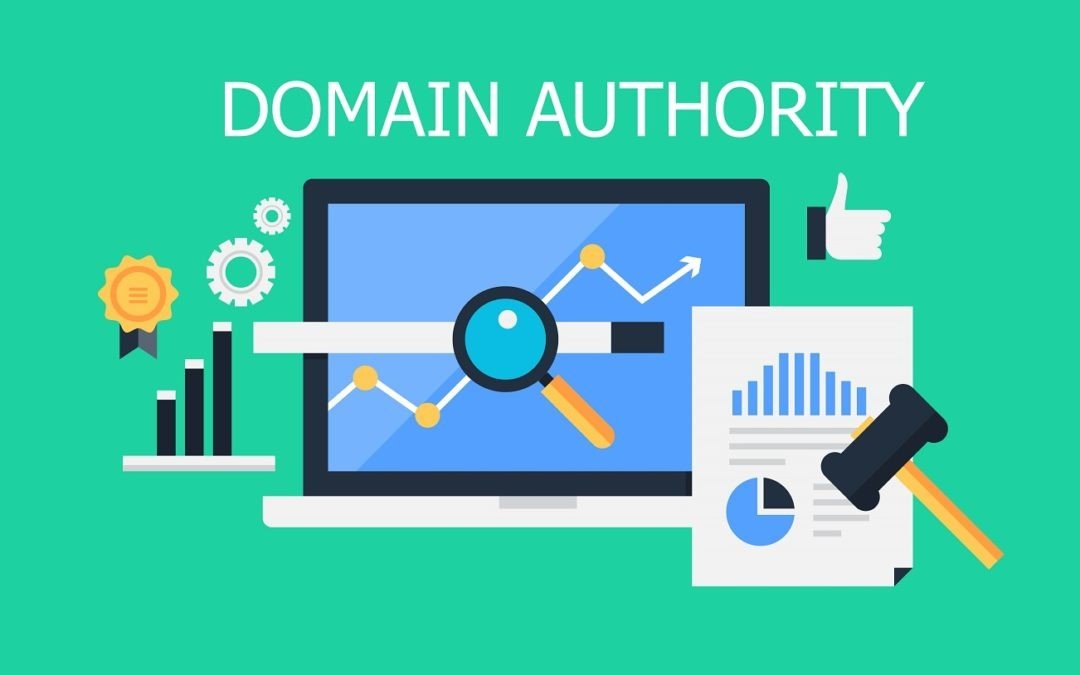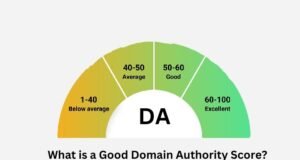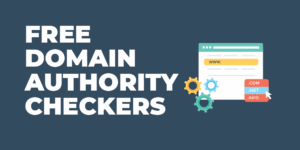Domain Authority: Boost Your SEO & Improve Rankings in 2025

Introduction
In the competitive realm of digital marketing, simply having a website is not enough — it also has to make a strong impression & rank at the top when someone searches for it. That’s where Domain Authority (DA) comes into play. Domain Authority is a website authority score created by Moz that can best predict how your website will rank on search engines like Google. Domain Authority, or DA, is measured on a scale of 1 to 100, with a higher number meaning a better probability the website can be ranked higher. But one of the questions every business owner, blogger, and marketers should be asking is: why does this number matter so much for my website’s growth?
DA is your website’s reputation score. If your DA is higher than a websites your customer might be searching for, then that wager you will get the click. The lower the DA, the more difficult it’ll probably be to get the click. Studies have shown websites with a higher DA are 56% more likely to rank in the first search page on Google. This is huge when you consider the impact of organic traffic on conversions.
It doesn’t matter if you are a small business trying to reach local customers or a content creator looking to grow your audience, building your Domain Authority is a great way to impact your website positively. In this blog we will explore actionable ways to build domain authority & search visibility focusing on the long term.
What is Domain Authority?
If you have ever wondered how some websites rank so effortlessly at the top of Google, while others can barely appear on page two, one of the critical factors often comes down to Domain Authority (DA). Simply put, Domain Authority is an authority score for a website that predicts how likely your site is to rank on a search engine results page (SERPs). The more authority a site has, the better its odds are of beating out the competition for relevant keywords.
Domain Authority was developed by Moz, one of the biggest names in the SEO space. Its scaled from 1-100 with brand new websites starting down low and well-established sites like Wikipedia or Amazon ranking near 90 or above. For example, a local bakery’s website might have a DA score of 25 while a global powerhouse’s like Nike is in the 90s. This doesn’t mean the bakery can’t rank — merely that its competition is much greater to compete against, so it must have a stronger strategy.
However, this is where a lot of people start to get confused: Domain Authority is not a ranking factor used by Google. According to Google’s Search Liaison team, Google does not use DA in its ranking system. DA is a third-party metric created by Moz as a way for marketers to understand the competitive strength of a site. You can think of it like a credit score: it does not control your financial life, but it helps you see where you are and what might be lending institutions (or in this case search engines) opinion of you.
This is an important distinction to note also between the Domain Authority (DA) and Page Authority (PA) of your site.
- Domain Authority measures the overall strength of your entire website or domain.
- Page Authority measures the ranking potential of individual pages on your site.
For example, a blog post on a new site might have a much better Page Authority because of great content / backlinks, but the Domain Authority is still low.
What does this mean for your SEO planning? Because DA helps establish a standard by which you can measure progress and develop actionable objectives. A recent study conducted by Ahrefs discovered that 91% of all content receives zero organic traffic due to a lack of backlinks and authority (Source: Ahrefs). By tracking your history and score on DA, you can see where you stand against your competitors, take actionable steps to facilitate site credibility, and drive more quality backlinks and organic rankings.
In layman’s terms, Domain Authority won’t directly tell Google to rank you higher, but it serves as a compass to track SEO strategy implementation and how you are tracking toward the goals you set for yourself. If you are asking “What is domain authority in SEO and how do I use it to grow my business?”, this is a metric you should familiarize yourself with prior to performing an in-depth investigation into SEO.
Why Domain Authority Matters for Your SEO Success
Have you ever noticed that your competition ranks higher than you in Google even though your content matches or excels theirs? Oftentimes, that answer comes down to domain authority (DA). Google does not use DA as part of their ranking systems, however, the matrix indexes take into consideration that the higher the DA of any site, the better the likelihood of ranking well, receiving visibility, and gaining consistent organic traffic.
Higher DA, Better Rankings
In Simple terms, websites with a higher Domain Authority typically rank higher in the SERPs, partly because higher DA also indicates a trustworthy site with perceived authority.
Let’s say there are two sites looking to rank for the keyword “Best organic skincare products.” It will stand to reason that the site with a DA of 65 will typically outrank the site with a DA of 18.
A Backlinko study of over 11.8 million search results exemplified that a higher number of backlinks an article has, a core component of Domain Authority, the better it ranks.
Boosting Visibility & Trust
Domain authority has also found itself being an important measure of trust for partners and backlinks. When a blog, social media influencer or other business is considering linking to your site or even, doing something further in partnership, they will often check your DA first.
According to Ahrefs, 91% of all pages get zero organic traffic largely because of authority issues. With higher DA, you can get visibility and ultimately backlinks, and maybe even partnerships. Brands and publishers especially, will typically check your DA before collaborating with you.
Authority Equals Growth
Domain Authority matters because it is an answer to the strength and growth potential of your site. The higher the Domain Authority, generally the easier it becomes to outrank competitors, earn trust, and develop passive organic traffic.
What is a Good Domain Authority Score?
If you’ve looked up your DA score prior, then you’ve probably asked yourself, “Is this good enough to rank on Google?” The answer is there isn’t one “perfect” DA score, as it varies widely by industry and competition. While there is not a perfect length for outlining how to measure and track DA for your own website, knowing the DA score range and estimating current score will help you establish realistic goals and track your progress along the way.
The DA Scale: 1 to 100
Moz, the creator of Domain Authority, measures DA on a range of 1 to 100.
- New websites are typically ranked between 1–10 because they haven’t built any significant backlink history.
- Established websites with strong backlink profiles and more consistent content typically have a DA score between 50–70.
- Industry leaders, such as Google, Amazon, and Wikipedia, typically have a DA of 90+, which makes them nearly impossible to outrank in the Google algorithm.
Fact: According to a Moz study, the average DA for a small business website is around 30-40, while larger companies often score above 60.
DA Score Ranges at a Glance
| DA Range | Score Meaning | Example Websites |
| 1 – 20 | Low DA – New sites, or sites with very little SEO efforts. | Local startups, new blogs |
| 21 – 40 | Moderate DA – Recognized as a developing site with some backlinks and content. | Niche blogs, small businesses |
| 41 – 60 | Strong DA – Backlink profile is in good standing & the site implements consistent SEO efforts. | Mid-sized businesses, popular blogs |
| 61 – 80 | Very Strong DA – Highly trusted and authoritative sites. | Regional brands, news sites |
| 81 – 100 | Elite DA – Industry leaders with massive link equity. | Google, Wikipedia, Amazon |
Why Your Niche and Competition Matter
The “ideal” DA score is hugely dependent on the niche. For instance,
- Local bakery in a small town stands to do well with a DA of 25–30
- A tech startup in a highly competitive space may need a DA of 50+ to compete with old established players
- Global brands and large e-commerce types often have DAs of 70+
Instead of being obsessed with trying to get an 80+ DA, just try to get in front of you direct competition. If their average DA is 35, put your sights on getting 40 or more.
Proven Ways to Improve Your Domain Authority Score
Building your Domain Authority (DA) takes time — but with the right ideas & strategies, you can build authority on your website over time as well as improve your position on Google. If you’ve asked yourself, “How can I improve my Domain Authority score?!”, then here are some actionable, proven ideas to improve your score.
-
Build High-Quality Backlinks
Backlinks are the backbone of Domain Authority. Backlinks are votes of approval from other websites. The more high-authority websites that link to your website, the more trusted Google sees you.
A Backlinko study with 11.8 million search results, showed that pages with the most backlinks, ranked higher on Google.
Ways to generate quality backlinks:
- Guest post on niche authority blogs.
- Create original research, infographics or stats that need to be referenced.
- Build relationships with influencers and/or industry experts.
- Submit your site to relevant business directories.
Quick Win Tip: Use tools such as Ahrefs or ubbersuggest to find broken link requests on relevant sites to offer your content as an alternative known as Broken Link Building
-
Create Evergreen, Shareable Content
Great content attracts backlinks. If you publish content that is solving problems, and/or providing insight, people will share and link to your site.
Here are a few examples of evergreen content that thrive:
- Ultimate guides (e.g., Complete Guide to E-commerce SEO).
- Case studies with real data.
- Industry statistics and trend reports.
As Neil Patel says, “Content is the base of all SEO.” If you keep your content updated regularly, it will have more relevance and value.
-
Improve Your Internal Linking Structure
Did you know that internal links can make a difference to your DA? Internal links help distribute link equity throughout your website. Internal links can help search engines crawl and understand your content hierarchy.
The following strategies are the ideal practices for internal linking SEO:
- Link from pages that get considerable traffic to newer or lower-ranking pages.
- Use descriptive and keyword-rich anchor text.
- Don’t just link for the sake of linking — each link you create should be worthwhile, valuable, and relevant.
Pro Tip: Be sure to include at least 3-5 internal links in every blog post; this both helps readers decide what to look at next and helps with crawlability.
-
Enhance On-Page SEO
Strong on-page SEO optimization will aid in the improvement of overall Domain Authority. The search engines want to see optimized content that is relevant and that is searched for and that is optimized, straight across the page.
Here are some areas to look at:
- Make sure to optimize your title tags and include primary keywords.
- Write compelling Meta descriptions to improve your click-through rates.
- Use correct header tags (H1, H2, H3) to keep pages organized and structured.
- Be thoughtful about your URLs and keep them clean and user-friendly.
- Include alt text in images for accessibility and indexing.
-
Remove Toxic Backlinks
Not all backlinks are good. Low-quality links and spammy links can influence your DA as well as your SEO ranking.
There are tools like Google Search Console or Moz’s Link Explorer that will help you identify low-quality or toxic backlinks. When you identify toxic backlinks, you can either:
- Reach out to the site owner requesting the back-link to be taken down, or
- Use Google’s Disavow Tool to get rid of the permissions to link to those specific links.
According to Google, getting rid of spammy links is a huge factor in keeping a profile good for SEO.
-
Boost Website Speed and Mobile Friendliness
Technical SEO is a major contributor to your Domain Authority. If your website does not load quickly or is not mobile-friendly, visitors will likely leave your website quickly basically meaning that Google’s result will marked it as not valuable.
Take these quick steps to fix this:
- Use tools like PageSpeed Insights to test your load time.
- Compress images and use browser caching for static resources.
- Move your website to a responsive mobile-first design.
- Use a solid hosting company for faster server response times.
How to Check Your Domain Authority Score for Free
Before you can start working on improving your Domain Authority (DA) — you need to know where you are at currently. But here is the good news — you don’t need to spend money on any expensive tools to do this. There are a number of free domain authority checker tools that will allow you check your DA score in seconds.
Popular Tools to Check Domain Authority Online
Below are some trusted tools for checking domain authority online:
- Moz Link Explorer – The original creator of Domain Authority & one of the most accurate Domain Authority checkers
- Ahrefs Website Authority Checker – Provides DA-like metrics with backlink analysis
- SEMrush – Domain insights, keyword tracking, and competitive research.
- Ubersuggest – Neil Patel’s free SEO tools that allows you to track your DA, traffic, and backlinks.
Step-by-Step: How to Check Your DA Score Using Moz Link Explorer
Moz has a free Moz DA checker, which is possibly the easiest how to measure authority for your website. Here’s how:
- Visit Moz Link Explorer: Go to https://moz.com/link-explorer
- Enter Your Website URL: Enter your domain name in the search box.
- Sign Up for Free Account: Moz give you up to 10 free searches a month.
- Review Your DA Score:
- Your Domain Authority score will be displayed, a score from 1-100.
- Other closely related metrics you should look include linking domains, total backlinks, and also spam score.
- Compare against Competitors: Enter competitor websites against which you can compare, benchmark against these competitors.
Pro Tip: Be sure to check your DA score, at least once a month, this way you can see the progress you have made. This consistency allows you to track progress and measure the effects of your SEO efforts.
Metrics to Look for Beyond DA
Although DA is the metric that is important to account, it is not the only metric you should use: there are many other numbers you will want to watch while using Moz or Ahrefs or similar tools.
-
Spam Score:
Assessing the chance of harmful backlinks to your website hurting your rankings. It’s a good idea to keep your spam score below 5% to ensure a great quality link profile.
-
Backlink Profile:
An assessment of the quality and quantity of backlinks pointing to your website. Although you may have a good DA, spammy backlinks could hurt your SEO.
-
Linking Domains:
Generally, the more unique, reputable domains pointing to your website, the more authoritative you will be and the faster you will increase it.
-
Page Authority (PA):
The strength of individual pages rather than the strength of the entire domain.
Fact: according to Moz, the website has a DA score tends to grow 40% faster than a website with fewer referring domains, with diverse, high-quality backlinks.
Why This Matters
Regularly measuring your DA score will give you a good understanding of whether your SEO strategies are effective at promoting your website. For example, if your DA score has remained stagnant through multiple months or quarters, it might be time to take a look at your backlink profile, or order new content.
Think of your DA as a health check for your website to see if you are on the right path or if it’s time to take corrective action.
How to Include Domain Authority in Your SEO Strategy
Improving your Domain Authority (DA) is not just about the number – it builds a foundation for successful SEO for the long haul. If done properly, you can embrace domain authority in your SEO strategy, which will help with ongoing progress, gain preferences over competitors, and use your efforts to attract high-quality organic traffic.
But how do you make DA a worthwhile component of your SEO planning? Let’s reduce this down to a systematic approach.
-
Use DA to Identify Competitors and Benchmark Performance
Do you currently know where you stand in relation to your competitors?
By assessing your DA and those of your competitors you will be able to uncover gaps and opportunities. For example if you are at a DA of 25, but competitors in your niche are over 40, obviously you have to address your backlink strategy and opportunity to contribute through content marketing.
How to do it:
- Utilize tools like Moz Link Explorer or Ahrefs to measure DA scores and traffic and backlink profiles.
- Identify your top ranking competitors and that are being linked to.
- Build your list of high-DA websites to target for backlinks.
ProTip: According to Moz, sites with more quality linking domains have far higher SERP placements on average than their competitors, even when the same keywords are not fighting the same battles.
-
Guide Your Backlink Outreach Strategy
Backlinks are one of the strongest factors for increasing domain authority, but don’t chase every link you can find, instead focus on quality.
- Aim for high DA: One DA 80 link is better than 10 DA 20 links.
- Produce linkable content: Idea examples include guides, statistics, resources, or case studies that are shareable and useful for evergreen topics. Engaging pieces of content will pull you links naturally.
- Use guest blogging wisely: By guest posting for reputable sites within your industry, you will increase your authority on the topic and help increase traffic back to your site and increase your DA.
Fact: Backlinko did a study to discover that more backlinks for a page = strong rank on Google indicates that backlinks are an essential component of any website performance strategy.
-
Plan Content Around High-DA Websites
When developing your content calendar, you will want to consider how these resources would track SEO growth and domain authority improvements in the typical span suggestion of a quarter/yearly.
Here is how:
- Use tools like Ubersuggest or SEMrush to research topic/ideas that are trending right now.
- Look at your competition: Find out what high DA sites are writing about, and possible gaps within content areas where you can write a better resource.
- Create resources that are worthy of linking to: Example topics: ultimate guides, infographics, research reports.
The goal is to produce content that will not only rank but will obtain natural backlinks over time.
-
Track DA as a KPI for SEO Growth
Your DA score can be a key performance indicator (KPI) to measure SEO development. While it shouldn’t be the only metric you monitor, tracking it closely and regularly will measure your progressive strategies accordingly, to estimate if you’re moving in the right direction as time goes by.
- Monthly checks: Find a free tool, Moz or Ubersuggest, and record your DA.
- Combine with other metrics: Remember DA is just one metric out of many. Also measure existing organic traffic, conversion rate and bounce-rate to see how they relate against performance.
- Celebrate small victories: Even a 3–5 point increase in DA over two or three months is a step in the right direction.
-
Balance DA With Other Ranking Factors
This is where you must strike the balance overall. DA is important, but it is not everything that will drive an overall SEO effort. One of the biggest mistakes people make is to only focus on building links and neglecting the quality of the content and user experience.
Some of the factors Google ensures are:
- Your content is high quality, relevant and fits the user need.
- Your website should be mobile friendly and loads and operates quickly for better performance
- In addition to the above, look at Core Web Vitals – thresholds on page load and interactivity.
Think of DA as part of the bigger picture — it works best when combined with a broader holistic SEO strategy.
Conclusion
Enhancing your Domain Authority is not a quick process — it is a long-term SEO tactic that builds your website’s trust, visibility, & ranking potential. When you put your attention towards quality backlinks, quality content, & smart SEO improvements for your website, you will be enhancing your DA, as well as seeing ongoing growth in organic traffic & search visibility.
Now’s the time to get moving. Check your DA, figure out some things you can improve, and start to apply some proven domain authority SEO tactics today. At AGTC, our SEO experts help businesses build sustained authority through customized strategies designed to benefit your long-term SEO. Are you ready to grow? Contact AGTC & start your journey toward a stronger website with higher rankings.
FAQ
-
What is domain authority in SEO?
Domain Authority (DA) is a website authority score created by Moz to predict how well a website will rank on search engines. The DA score is measured out of 100; the higher the score, the stronger the ability for a website to rank.
-
How can I increase my domain authority quickly?
The quickest way to increase your DA score is to build quality backlinks from trusted websites and to create useful and evergreen (lasting) content that naturally attracts links. Regular audits and removals of toxic backlinks can also aid in improving your DA score.
-
Which tool is best to check domain authority?
You may use Moz Link Explorer, Ubersuggest, or Ahrefs to check your DA for free. They will also provide free additional SEO metrics such as backlink profile and overall website authority tracking.
-
How often should I check my DA score?
Once a month is ideal for checking your Domain Authority, as it will be easy to see the overarching progress you’re making without getting distracted by minor weekly changes. Plus, this timeframe works well with your planned SEO monitoring.
-
Are backlinks necessary to improve DA?
Yes! Backlinks are one of the top three most important factors to increase your DA. Make sure you are aiming for links from reputable, high authority websites that are within your niche, not low-quality or spammy links. According to Backlinko, the pages that rank substantially better in search results tend to have more high quality backlinks.
-
Can internal links boost domain authority?
Yes. Internal links pass link equity around your site. It also helps search engines crawl your site by showing them the structure of your website, a bit like a great navigation map. The link equity helps strengthen your individual pages and, ultimately, your domain as a whole.”
















